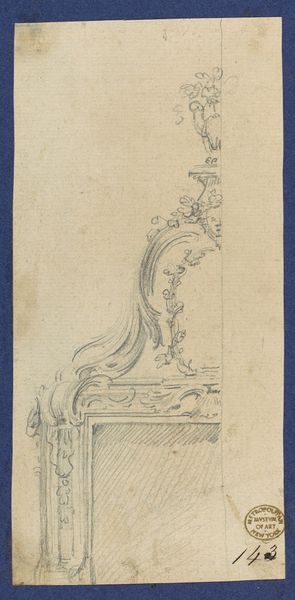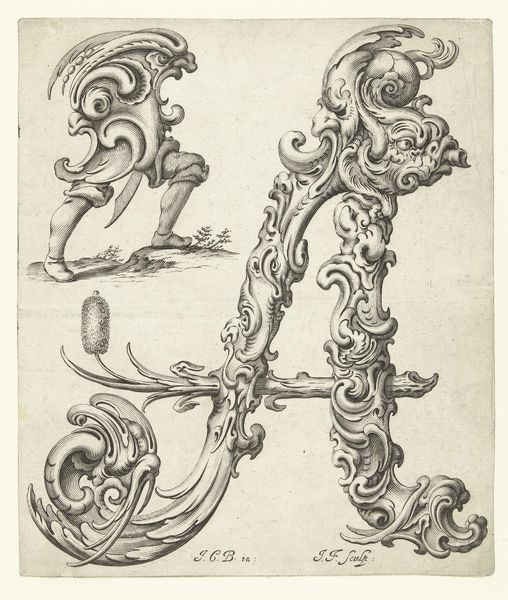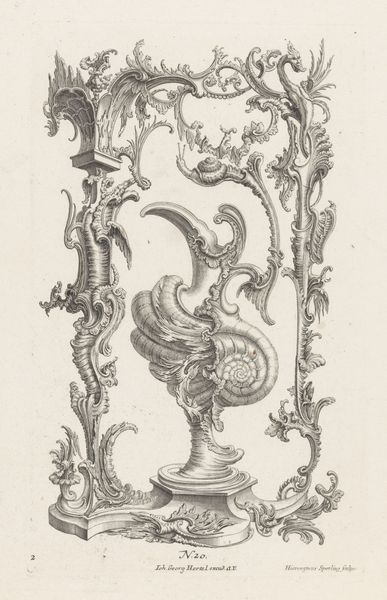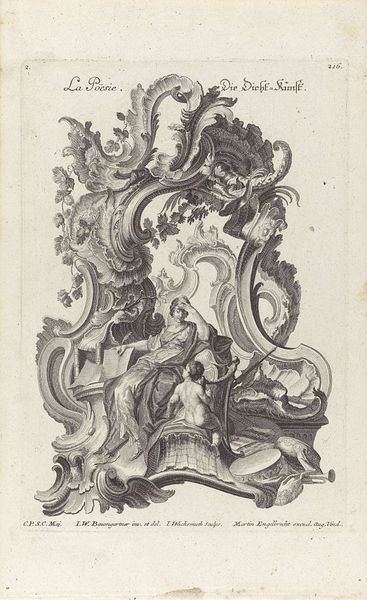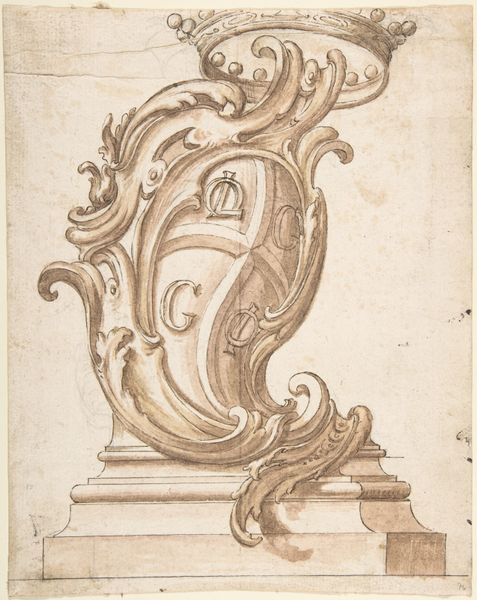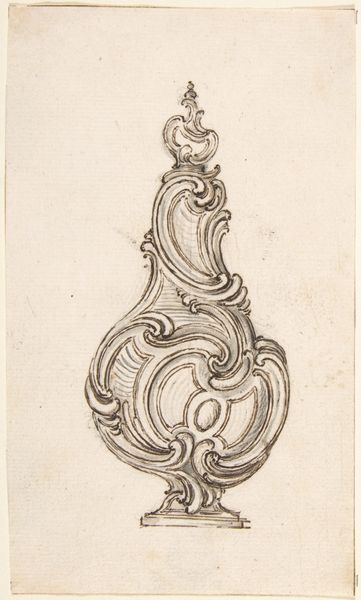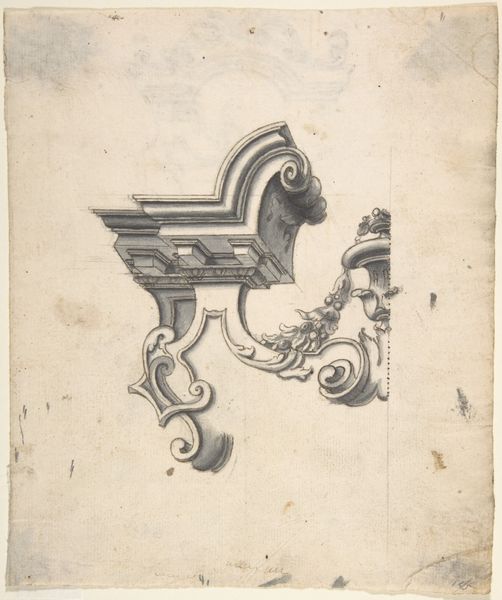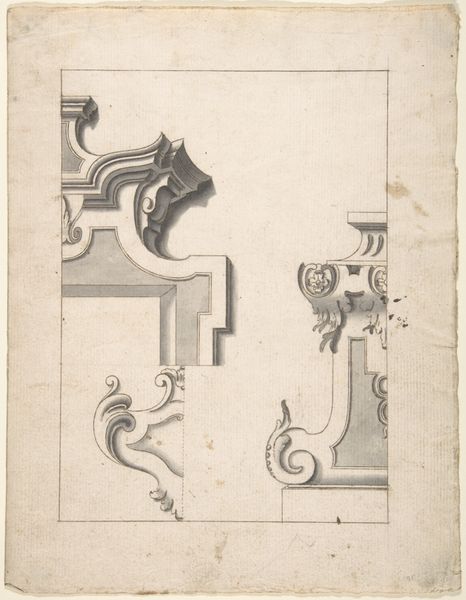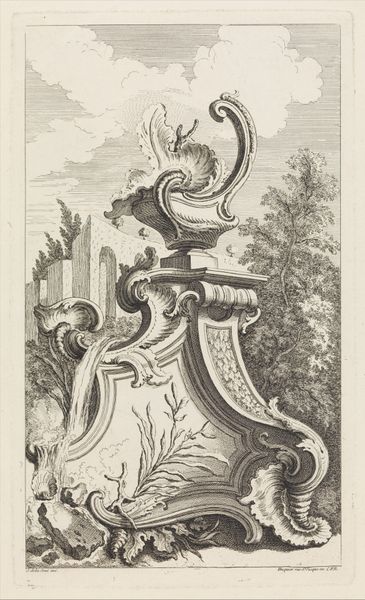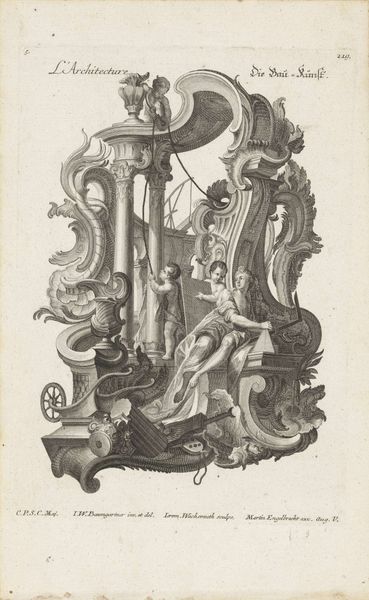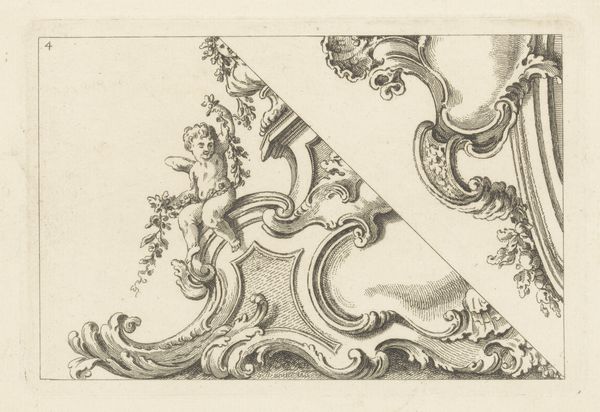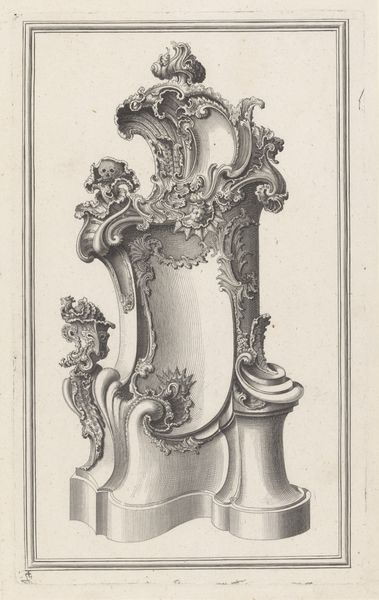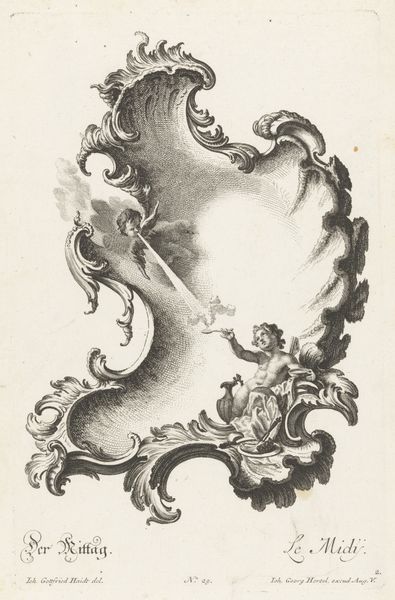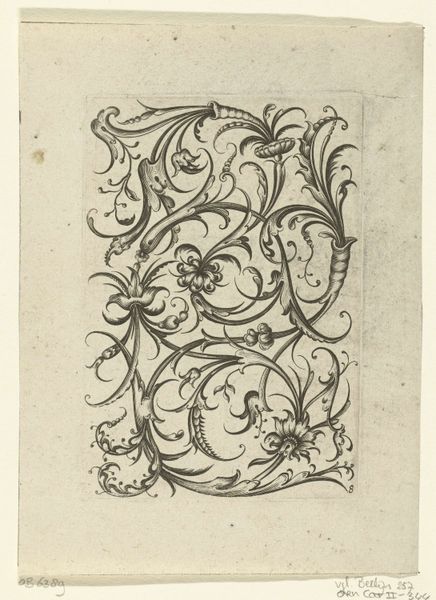
drawing, ink, architecture
#
drawing
#
baroque
#
pen drawing
#
form
#
ink
#
line
#
architecture
Dimensions: sheet: 11 1/2 x 8 1/4 in. (29.2 x 21 cm)
Copyright: Public Domain
Curator: Here we have a drawing titled “Design for One Half of an Overdoor,” likely dating between 1700 and 1780. It's an ink and pen drawing, and fascinating as a piece documenting architectural design in the Baroque style. Editor: Oh, it's incredibly ornate! My first impression is that it’s delightfully excessive. I love all the curves and flourishes; it’s as if someone let their imagination run completely wild. What exactly is an overdoor in architectural terms? Curator: Simply put, it's the decorative ornamentation placed above a doorway. It became popular during the Baroque period as part of interior design for aristocratic patrons to display power through ornamentation. It provided ample opportunity to add symbolic references, narratives and imagery tied to a specific patron or purpose. Editor: Those chubby little cherubs peekin' out—they're practically hiding amid all that swirling decoration. They add this playful little detail. It seems like Baroque architecture knew exactly how to have fun with symbolism. Curator: Indeed, and the uninhibited use of line and form are distinctive stylistic features of the era. As a physical artifact on paper, it offers valuable insight into the design processes in workshops of the time. Also, notice how this drawing only represents half the design, it suggest repetition and balance. Editor: It does spark my curiosity about its purpose. Was it purely ornamental? Does the decoration convey messages? It makes me wonder about the space it was meant for...who inhabited that space, how was the whole construction put together? Curator: Precisely, those are vital historical inquiries that enhance our understanding of it within the broader context of architecture and patronage during the Baroque era. It becomes an entry point to understanding the construction of power in aristocratic European culture. Editor: Knowing all this, it becomes far more than just decoration; it represents a fascinating chapter of history frozen in swirls of ink. Curator: I think that is a beautiful and precise reflection, really.
Comments
No comments
Be the first to comment and join the conversation on the ultimate creative platform.
